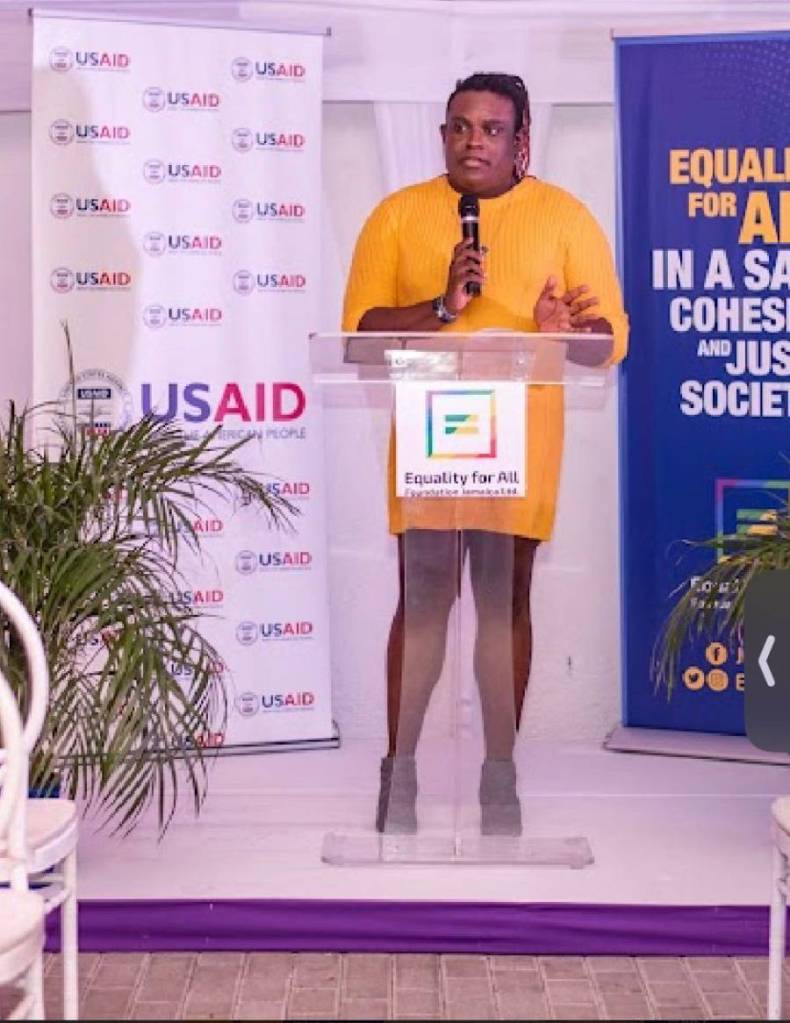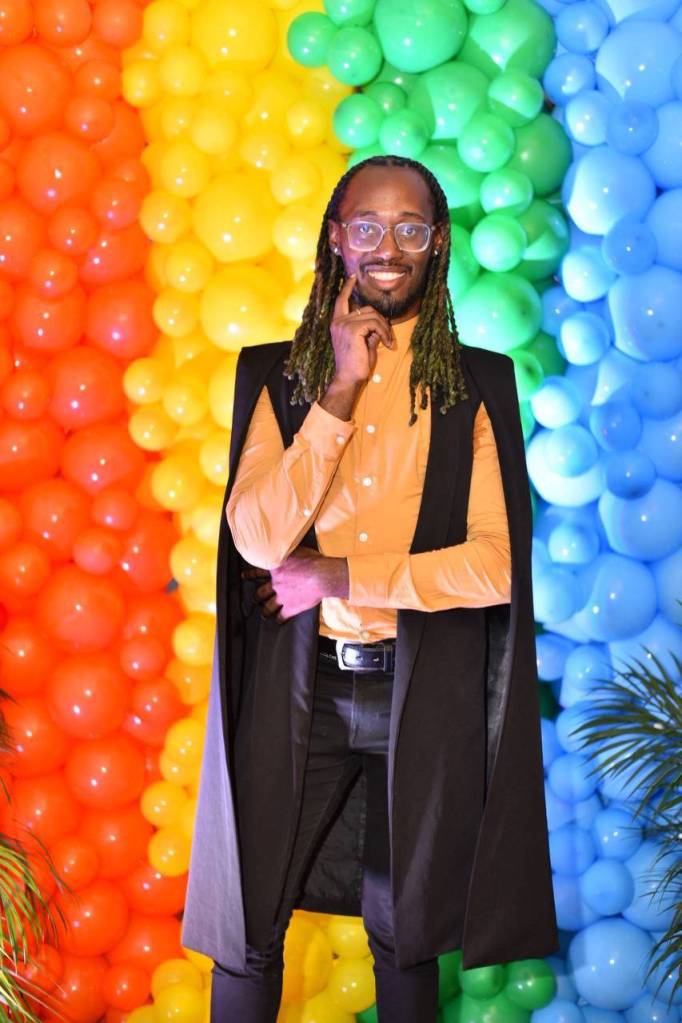Jamaica’s break from British monarchy must bring about queer liberation, activists say

King Charles’ coronation has accelerated Jamaica’s plans to become a republic, and activists say it’s time to talk about LGBTQ+ equality. (Getty/PinkNews)
King Charles III’s coronation has accelerated plans for Jamaica to become a republic, and activists say it’s time for the country to take a big step forward on LGBTQ+ equality.
The former British colony has been independent since 1962, but – like other Commonwealth nations – has retained the British monarch as its head of state. Jamaica has also retained colonial-era laws criminalising same-sex sexual activity.
Jamaica’s minister for legal and constitutional affairs Marlene Malahoo Forte said the ascension of a new British monarch sped up her nation’s plans to become a republic, formally breaking ties with the UK.
Forte’s “urgent” referendum could be held “as early as 2024”, Sky News reported. The move would see Jamaica write a new constitution and have its own president in the next year.
With such a monumental political event on the horizon, Renae Green, executive director of TransWave Jamaica, tells PinkNews that the work she and other queer activists have been doing in the country has been “yielding some fruit” as they’re “seeing some changes”.
She believes the nation’s break with the British monarchy will bring about fresh opportunities to implement vital LGBTQ+ equalities legislation.
“We’re seeing more and more people having positive conversations about us,” Green says. “Currently, we’re going through a national process to essentially change who is the head of our state.”
She continues: “They want to remove the now King as the head of our state, and we’re going to be trying to. I think we’re going to become a republic, so we’re going to have a president as the head of our state.
“Even in that conversation, people are asking, ‘Where are the queer and trans people?’ You know, like 10 years ago, that would have never happened to me.
“And so to me, that’s progress, and it’s a testament to all that we’ve been doing and that we’ve been trying to achieve here.”

Green says that violent acts against LGBTQ+ people, particularly trans Jamaicans, have become less frequent. But verbal attacks and discrimination remain rife, and she says it comes from the top as trans people “don’t exist” in Jamaica’s legislative framework in ways that affirm their identities.
“There’s a difference between the Jamaic of 10 years ago and Jamaica now, but of course, that doesn’t mean that violence is non-existent,” she says.
“We still have moments of acts of transphobia that take place, and with the political landscape and all of that, it’s not where it needs to be.”
The country still lacks sweeping legislation that prohibits discrimination on the basis of sexual orientation and gender identity.
Jamaica’s Offences Against the Person Act, which was inherited under British colonial rule, criminalises ‘buggery’ or same-sex sexual intimacy with punishments of up to 10 years in prison with hard labour.
The law has rarely been enforced, but Glenroy Murray, executive director of J-FLAG – Jamaica’s largest LGBTQ+ rights organisation – says it sends a “clear message about the place of LGBTQ+ people” in the country.
“It gives an implied licence to the general public to treat us as if we are second class citizens,” Murray says. “While the law itself is the not the cause of Jamaican homophobic and transphobic acts and mentalities, it definitely encourages them.”
He continues: “Naturally, there are other factors that contribute to the prevalence of these negative attitudes such as the high level of religious conservatism and traditional attitudes to gender and the general association of queerness with foreign cultures.”

There’s been a “notable decline in violent rhetoric” towards the LGBTQ+ community in Jamaica over the last five to 10 years as queer visibility has increased, but Murray says this hasn’t translated to “major legal changes to increase protection for our community”.
“At present, we’ve noticed that while more LGBTQ+ Jamaicans are being their authentic selves, many others are not able to benefit from the positive changes – particularly those who live in rural areas and transgender people,” he says.
“Many continue to face bullying in school, discrimination at the workplace and verbal harassment by members of their family and communities.”
Several Caribbean nations overturned colonial-era laws – and activists want Jamaica to follow suit
A growing number of islands in the conservative Caribbean region have struck down anti-LGBTQ+ laws that they inherited under British colonial rule. Barbados, Antigua and Barbuda and St Kitts and Nevis all overturned such legislation criminalising LGBTQ+ people in 2022 alone.
However, Jamaica has resisted such a move.
In 2006, Time magazine branded Jamaica the “most homophobic place on earth” because of the intense violence LGBTQ+ people faced in the country at the time. Reports from human rights organisations describe the Caribbean nation as hostile towards queer people.
As the years have gone on, Jamaica has become more welcoming of queer people, and Green feels “extremely grateful” that more LGBTQ+ folks are able to be visible and out.
She says they’ve been using their platforms to advocate for LGBTQ+ equality and champion the rights of “trans people to exist and live” in Jamaica.
“I think that, in itself, has helped us carve out safe spaces and more people and businesses are willing to work with us, to provide us support and care, to ensure that we were treated as every other customer that steps into their establishment,” she says.
“Because of that, we’re able to even exist in spaces that aren’t necessarily predominantly queer spaces [like] restaurants, bars, stores and there’s different places – plazas – where we’re able to exist.”
Murray also says that the Jamaican LGBTQ+ community continues to find joy and support amidst a “challenging contest”. He says this “resilience will be the cornerstone that sustains and evolves” their movement.
“The truth is that LGBTQ+ Jamaicans have always been resilient,” he says. “They have always created spaces of joy and celebration regardless of the challenges they face.”
He continues: “As a community, we’ve historically had gay clubs, lounges and annual events such as pageants.
“We also have regular parties that are the lifeblood of the community. In recent years, we’ve had eight incident-free Pride activities.
“Even though COVID-19 had put a damper on the ability of the community to meet and connect, in its immediate aftermath there has been a resurgence of community events and spaces alongside a few mainstream events that have evolved to become more inclusive.”

